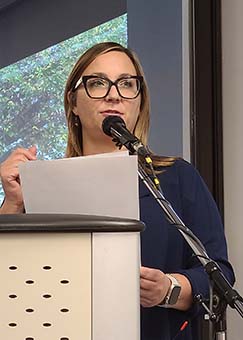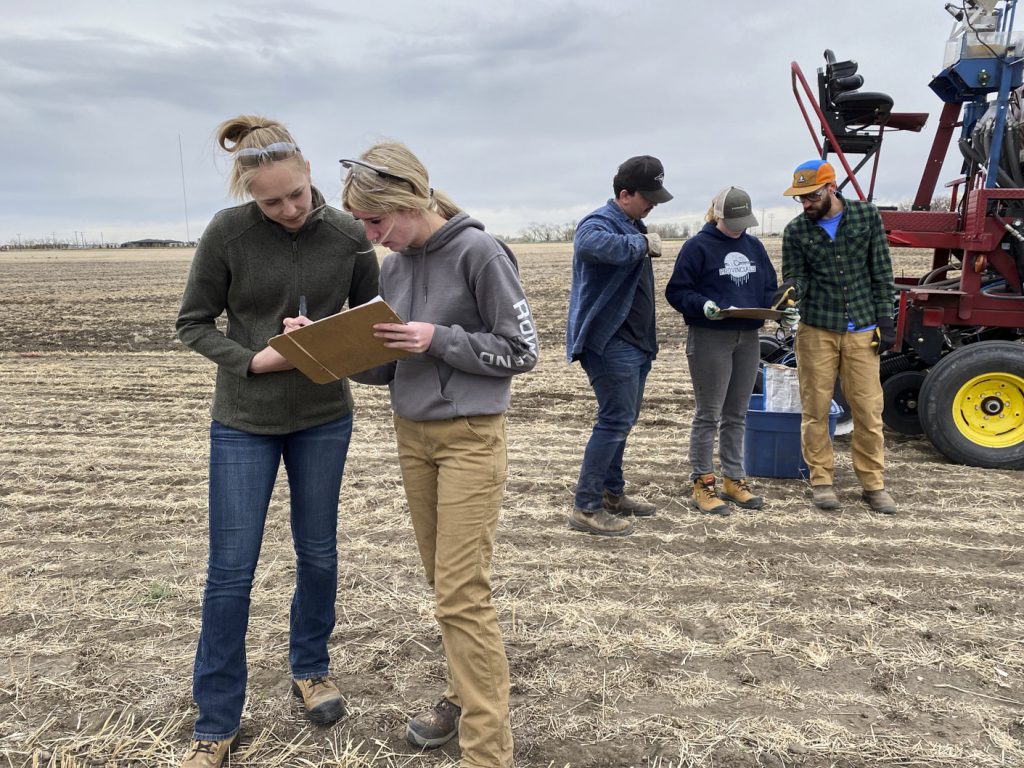by Madeleine Baerg
Across the country, volunteer boards of directors manage, monitor and support literally thousands of organizations, ag and non-ag alike. Board members generously contribute manhours, effort, and commitment to organizations. However, being a board member today isn't what it used to be.
Whereas board positions used to be coveted and board membership was a position of pride and some honour, the competing pressures of modern life have left boards today short-handed and begging for volunteers. Meanwhile, many non-profits today are much bigger businesses than ever before, leaving stretched and often under-qualified boards grappling to manage multi-million-dollar budgets. Given today's realities, is the current structure of boards and the expectations of volunteer board members effective?
"We're blessed to have a board that is effective," says Ken Coles, Farming Smarter's executive director. "But when I look across the landscape of ag boards, I'm seeing a lot of stress, frustration and potential pitfalls. I'm also very worried that, in this era of funding moving to a heavily project-based model, there are fewer and fewer dollars for the necessary administration that keeps organizations successful. That means boards are saddled with more and more operational weight. As an industry, we need to be thinking about how to move agriculture forward, which includes how we run boards and what we're asking them to take on."
While board management might seem a strange one for Farming Smarter's typically agronomy-focused magazine, our goal at Farming Smarter is to open new doors of possibility by pushing past the status quo, always with the ultimate goal to support southern Alberta's farmers. That means we question everything, from agronomy to novel crops to - yes - even board management.

Mandy DeCecco-Kolebaba, one of Farming Smarter's current Board members, looks at board leadership from every angle. She's been an executive director for a non-profit, has volunteered on multiple boards, and is by profession a strategic consultant who specializes in board effectiveness. She agrees with Coles that, first and foremost, boards shouldn't be carrying an operational role.
"So where a big company would maybe have a CFO and an HR manager, we're now expecting those things to fall on volunteer boards. I just don't think it's sustainable and, in fact, I've been part of organizations where [that reliance on volunteers] was the organizations' biggest failures," she says.
The expectation to carry operational weight isn't only foisted onto boards; many boards themselves incorrectly see that as their role.
"The number one thing I hear from executive directors is: Can you make sure that the board knows they're not involved in day-to-day operations?" says DeCecco-Kolebaba. "But then I go to the board meeting and it's all day-to-day operations. It's like: How many people did you serve? Who's using these services? How much money did you raise? What's the buy-in over here? That's when I step in and say, hold-up: that's not the big picture stuff. You're into the details of the day-to-day which can just be in a report. You should be thinking about growth, accountability, fiduciary responsibility, overall direction ≥ that's your role."
In fact, even that kind of governance model isn't the ideal or most effective option, DeCecco-Kolebaba says. Rather, she advises boards to shift from operational and governance perspectives to seeing themselves as supporters of the organization.
"Board members provide value because they bring different perspectives to the organization through their own life, work and professional experiences. If we can make that advisory component more important than the overarching bylaws and operational components, people on both sides of the organization would have a lot more satisfaction, and it would allow executive directors to have more autonomy in growing the organization," she says.

To successfully transition to an advisory board, the board must release ultimate responsibility for the organization's decision-making, both big and small. Rather than carrying the overall nuts-and-bolts of the organization ≥ a role many board members feel under-qualified to achieve, anyway - an advisory-focused board relies on proven accountability structures like accountants and auditors, values the professionalism of its staff, and builds a team-focused rather than interrogative relationship with its executive director. This critical shift creates space for the board to focus on overall guidance and for staff to deliver maximum meaningful value, much as a corporate board provides direction but gives autonomy to the corporation's CEO and team.
"Decision making needs to shift toward the executive director ≥ who, incidentally, should know the organization better than the board members anyway - with the caveat that every decision should be run through the filter of: Is this project our core business? Is this decision aligned with our mission, vision and values? If those are always the focus, then you can be confident good decisions are being made because everyone has already bought into the overall direction," says DeCecco-Kolebaba.
Respecting board members for what they know rather than what they can do by definition means the hands-on work of the organization will be carried by staff rather than board members - incidentally, a much healthier and more sustainable operational strategy. That requires adequate dollars for staffing, however.
"There's no question we need to allot more dollars to the administrative operations of these organizations," says DeCecco-Kolebaba. "We get into danger when we undervalue the benefits of having a strong admin team and focus only on the service delivery or the project delivery. Strong people on the back-end help with strong service delivery on the front-end. To only look at funding by individual project doesn't help with sustainability, longevity, good policies and procedures, or good people management."
The insight and commitment of volunteer boards is more critical than ever to agriculture, given the multiple and intense pressures facing this industry.
"We need to ensure those who step up are valued and given the support they need to make meaningful contributions, both at the staff and board levels," says Coles.
